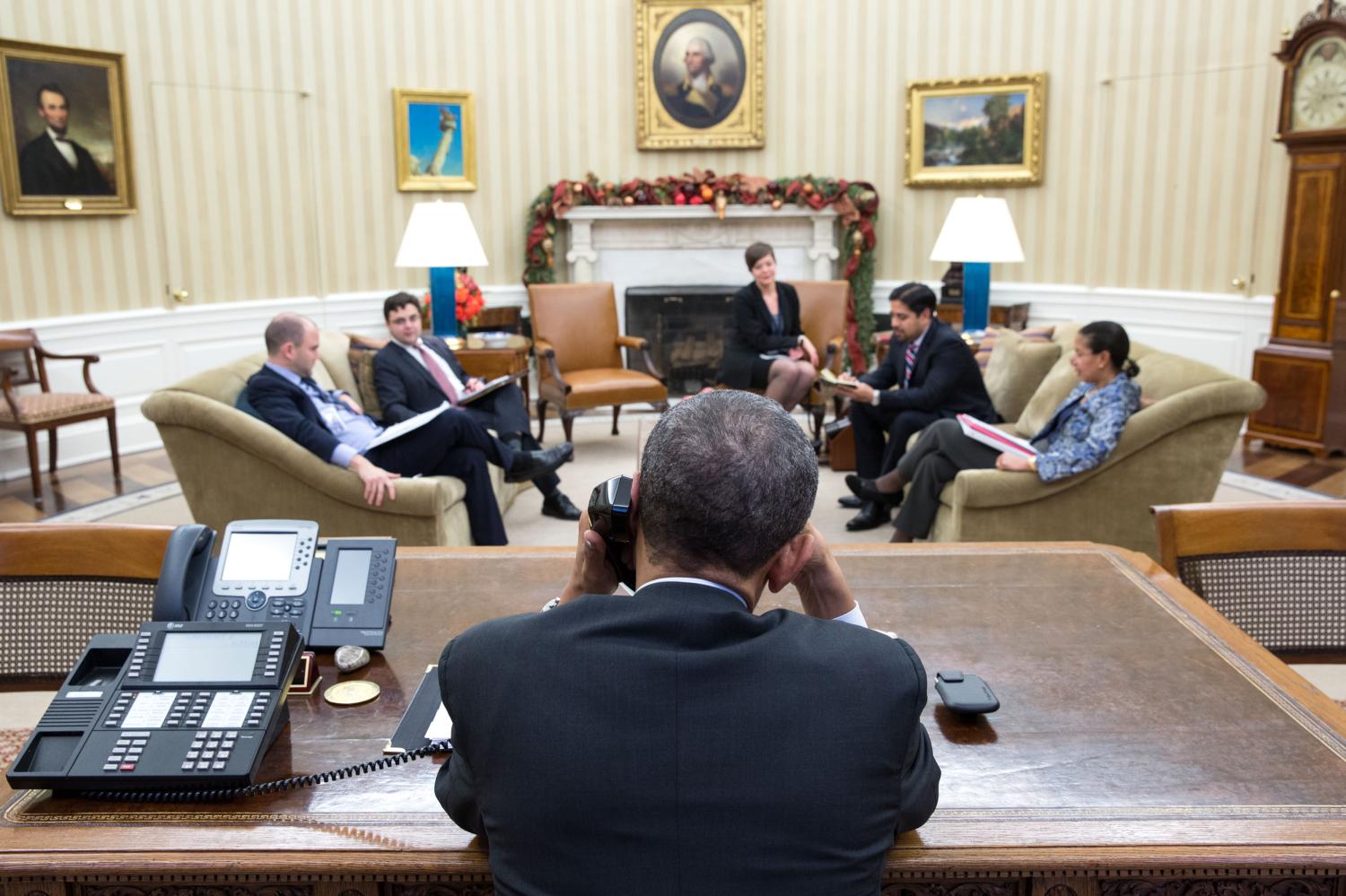On December 17, 2014, both President Obama in the United States and President Raul Castro in Cuba announced that the countries were putting the Cold War era of isolation behind them and pursuing normalization of relations. Though well received by many in both countries, the process is fraught with challenges.
To understand the strategic implications of this historic shift for the United States, Ted Piccone analyzes the potential effects of U.S. interests on three levels: bilateral, regional and global.
• Bilateral. The shift toward a policy of constructive but critical engagement with Cuba offers the Obama administration a chance to advance its strategic interests in a variety of areas, including counternarcotics and counterterrorism cooperation, aviation and maritime security, disaster relief, human trafficking and migration. Further state-to-state cooperation will be possible once diplomatic relations are fully restored.
• Regional. By opening the possibility of closer economic ties between Cuba and the United States, Cuba may lessen its dependence on Venezuela, especially for energy. The policy change was generally applauded throughout Latin America and the Caribbean but the longer term effects on hemispheric relations
• Global. Europe also warmly received the December 17 announcement, but Russia and China will continue to play increasingly complex roles as creditors and investors in the island. The Ebola crisis in West Africa offers an opportunity for cooperation between Cuba and the United States; both countries have sent medical workers to help contain the threat.
Piccone acknowledges that increased flows of money, goods and people could engender an uptick in criminal activity, illicit trafficking and other suspicious activities, but notes that the normalization process, while delicate, is meant to employ dialogue and negotiation to prevent and manage such problems. He concludes that while Cuba and the United States share a complex and difficult history, and their relations may never be “normal” per se, the December 17 announcement opened the door to a new era that will inevitably bring change to both countries.
This paper was originally published by Florida International University as part of the LACC/ARC/U.S. Southern Command Policy Roundtable Series, February 9, 2015.
The Brookings Institution is committed to quality, independence, and impact.
We are supported by a diverse array of funders. In line with our values and policies, each Brookings publication represents the sole views of its author(s).




